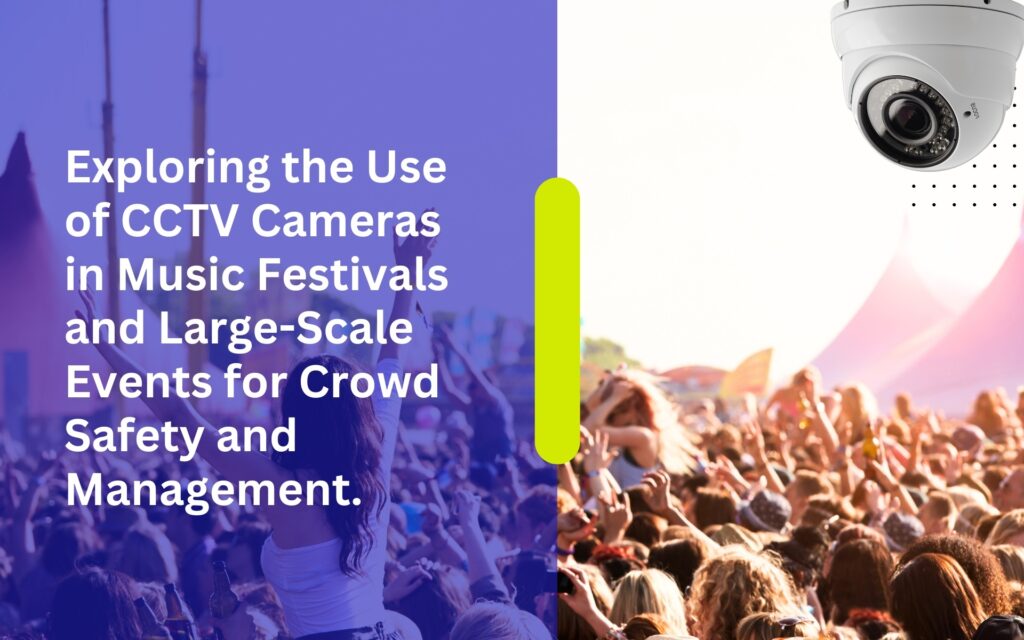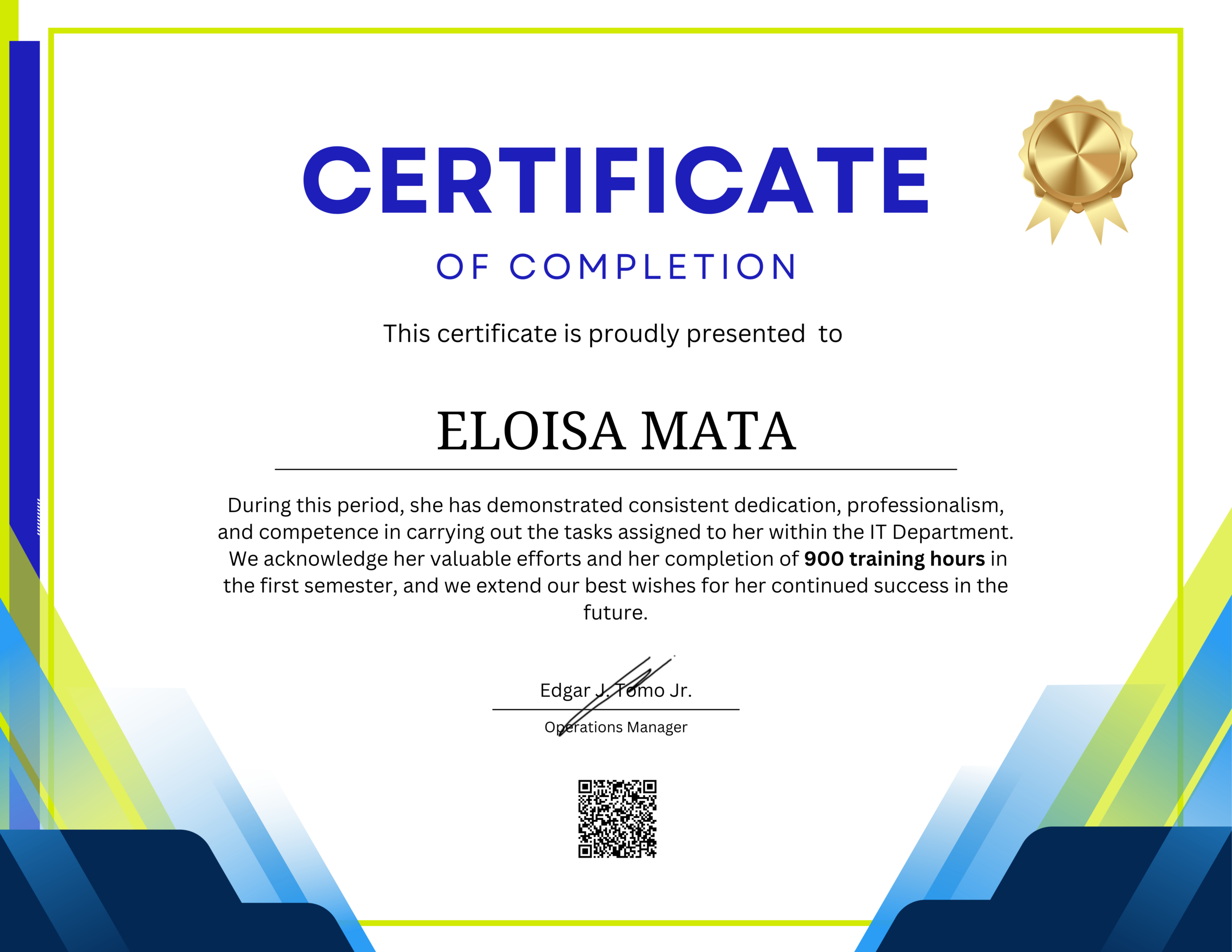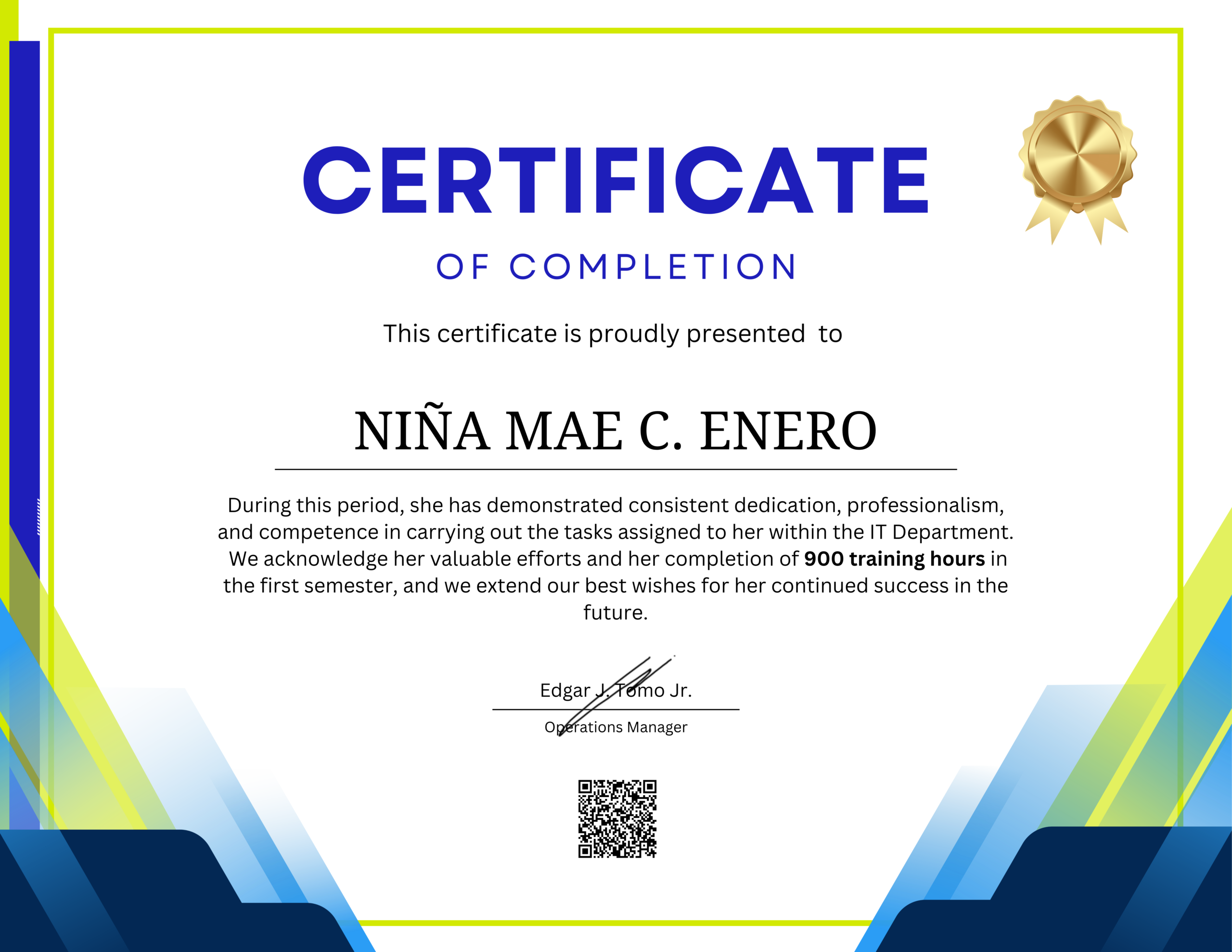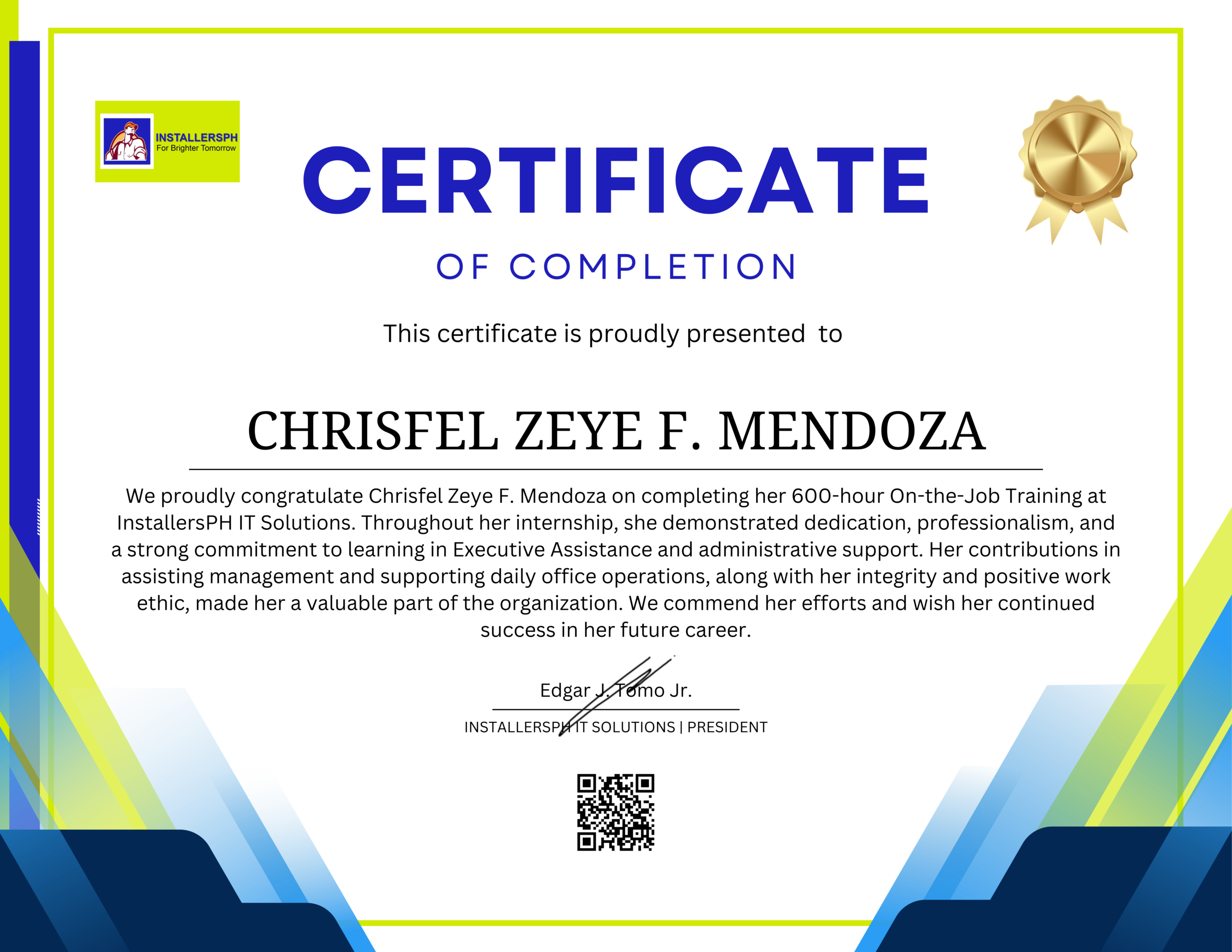The On-the-Job Training Experience of Niña Mae C. Enero Acknowledging Dedication in IT On-the-Job Training. During her on-the-job training period, she demonstrated consistent dedication and a strong sense of responsibility in fulfilling …
Exploring the Use of CCTV Cameras in Music Festivals and Large-Scale Events for Crowd Safety and Management.

Introduction
Music festivals and large-scale events are emblematic of modern culture, drawing in throngs of attendees for moments of collective celebration and artistic expression. However, amidst the vibrancy and excitement, ensuring the safety and security of participants remains paramount. In recent years, the integration of Closed-Circuit Television (CCTV) cameras has emerged as a pivotal tool in enhancing crowd safety and management. This comprehensive article delves into the multifaceted role of CCTV cameras in music festivals and large-scale events, exploring their benefits, challenges, and future prospects.
The Evolution of Crowd Management
Historically, crowd management at events relied heavily on manual interventions and the presence of security personnel. However, as the scale and complexity of gatherings burgeoned, traditional approaches proved inadequate. The advent of CCTV technology revolutionized crowd management by providing unparalleled surveillance capabilities over expansive areas.
Benefits of CCTV Cameras in Music Festivals and Large-Scale Events
1. Enhanced Security
CCTV cameras serve as vigilant sentinels, surveilling crowds and swiftly detecting any suspicious activities or security breaches. This proactive surveillance acts as a deterrent to criminal behavior and ensures rapid response to emerging threats.
2. Crowd Monitoring
Strategically positioned high-definition cameras offer real-time monitoring of crowd movements, density, and behavior patterns. This invaluable data empowers event organizers to implement proactive crowd management strategies, such as adjusting flow patterns or deploying additional staff to alleviate congestion points.
3. Incident Investigation
In the unfortunate event of an incident or altercation, CCTV footage serves as a crucial forensic tool for post-incident analysis and investigation. Law enforcement agencies can utilize this footage to identify perpetrators, gather evidence, and ensure the swift resolution of security-related issues.
4. Emergency Response Coordination
During emergencies, such as medical crises, fires, or natural disasters, CCTV cameras provide essential situational awareness to emergency responders. Precise information about crowd dynamics and the extent of the emergency enables more effective deployment of resources and evacuation procedures.
Challenges and Considerations
1. Privacy Concerns
The widespread deployment of CCTV cameras raises legitimate concerns regarding individual privacy rights. Balancing public safety with personal privacy necessitates robust privacy policies, transparent data handling practices, and adherence to legal regulations such as GDPR (General Data Protection Regulation).
2. Technical Limitations
Despite their effectiveness, CCTV cameras are not without limitations. Factors such as limited field of view, blind spots, and environmental conditions (e.g., low light or adverse weather) can compromise their efficacy. Regular maintenance, periodic calibration, and integration with complementary technologies (e.g., thermal imaging) are essential to mitigate these challenges.
3. Cost and Infrastructure
Implementing a comprehensive CCTV surveillance system entails significant upfront costs, including equipment procurement, installation, and ongoing maintenance. Moreover, maintaining a reliable network infrastructure to support high-resolution video streaming imposes additional operational expenses. Event organizers must carefully weigh these costs against the potential benefits and prioritize investments accordingly.
4. Legal and Ethical Considerations
The deployment of CCTV cameras implicates various legal and ethical considerations, including data protection laws, consent requirements, and the potential for misuse or abuse of surveillance footage. Clear guidelines, oversight mechanisms, and stakeholder engagement are essential to ensure compliance with regulatory frameworks and uphold ethical standards.
Future Trends and Innovations
1. AI-Powered Surveillance
The integration of Artificial Intelligence (AI) algorithms into CCTV systems holds immense promise for enhancing threat detection capabilities and reducing false alarms. Machine learning algorithms can analyze video feeds in real-time, identifying anomalous behaviors or potential security threats with unprecedented accuracy.
2. Mobile Surveillance Solutions
Advances in mobile surveillance technologies enable event organizers to deploy temporary CCTV systems tailored to specific venues or areas with limited infrastructure. Portable cameras equipped with wireless connectivity offer flexibility and scalability, empowering organizers to adapt to dynamic event environments effectively.
3. Integration with IoT and Big Data Analytics
Integrating CCTV cameras with Internet of Things (IoT) devices and Big Data analytics platforms enables comprehensive event monitoring and analysis. By correlating CCTV footage with other data sources such as social media feeds or weather forecasts, organizers gain deeper insights into crowd behavior and event dynamics, enabling more informed decision-making.
4. Facial Recognition Technology
Despite its contentious nature, facial recognition technology holds potential for enhancing security and crowd management at events. By identifying known troublemakers or persons of interest in real-time, facial recognition systems enable proactive intervention and targeted enforcement measures, thereby augmenting overall safety and security.
Conclusion
In an era marked by increasing security threats and evolving crowd dynamics, the role of CCTV cameras in ensuring the safety and security of music festivals and large-scale events is indispensable. By harnessing the capabilities of CCTV technology, event organizers can proactively mitigate risks, optimize crowd management strategies, and enhance the overall attendee experience. However, addressing privacy concerns, overcoming technical challenges, and embracing emerging innovations are imperative to unlocking the full potential of CCTV surveillance in the events industry. As technology continues to evolve, so too must our approach to crowd safety and management, ensuring that future gatherings remain safe, secure, and enjoyable for all participants.
Related Articles
The On-the-Job Training Experience of Niña Mae C. Enero Acknowledging Dedication in IT On-the-Job Training. During her on-the-job training period, she demonstrated consistent dedication and a strong sense of responsibility in fulfilling …
The On-the-Job Training Experience of Chrisfel Zeye F. Mendoza Introduction. On-the-Job Training (OJT) plays a vital role in preparing students for the professional world by allowing them to apply academic knowledge in …



